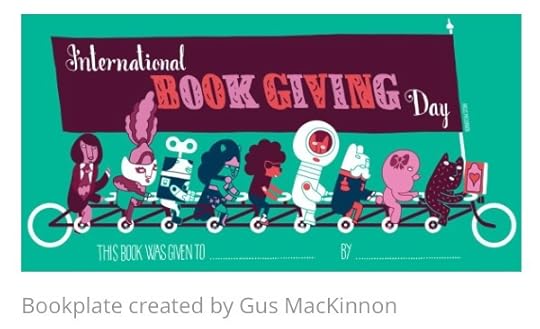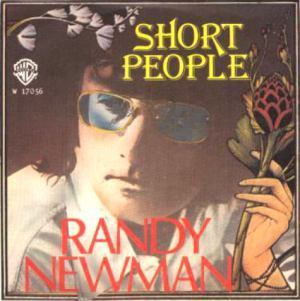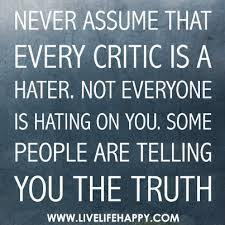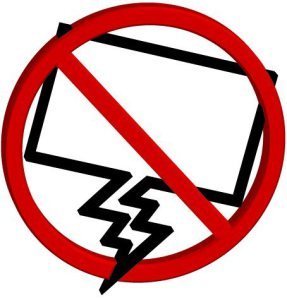Sally Ember's Blog, page 81
February 14, 2015
11 Tips for Promoting your Book
Great to-list for #marketing your #book, especially for #indies.
 Originally posted on Kobo Writing Life:
Originally posted on Kobo Writing Life:
An essential to-do-list for independent authors
from whitefox
There’s more to self publishing than just writing the book. Promotion is almost as important as putting pen to paper, but many authors don’t know where to start. Luckily there are a few relatively simple tricks you can employ to give your book a better shot at commercial success.
PICK THE RIGHT PRICE POINT
If you try to flog your book too cheap, readers will assume that it isn’t very good. Set the price too high and they won’t be willing to take a punt on you, an unknown author. According to Kobo’s Mark Lefebvre (here) , $0.99 for an ebook is so low that readers can’t resist, $2.99 tends to perform even better, but $1.99 is an awkward middle ground; it is cheap enough to suggest a lack of professionalism, but not cheap enough to convince readers…
View original 947 more words
Filed under: Writing

International Book Giving Day is nearly here!
I didn’t know about this: International Book Giving Day is this weekend! Buy a book and give it away!
 Originally posted on Rhino Reads:
Originally posted on Rhino Reads:
International Book Giving Day is THIS WEEKEND! A whole day dedicated to giving books to children…what could be better?
If you are new to IBGD you can find out more here. You can also download beautifully designed bookmarks and bookplates to tuck into the books you donate. Find them here.
It was IBGD 2013 that inspired the first Rainbow Library. The Rainbow Library has expanded and developed in the last two years and for IBGD this year I will be concentrating on my new partnership with HomestartUK. They are a charity helping families with young children deal with whatever life throws at them. They provide one to one support for parents through their volunteer scheme. This is hands-on support right at the most crucial time in children’s development. I really believe in Home-Start and the difference they make to children’s lives.
Before Christmas I donated a big…
View original 328 more words
Filed under: Writing

The Swimsuit Edition, Where Sexism Knows No Size
In a post filled with lines calling out our the unmediated #sexism and #objectification of women in our culture, and, in particular, “‘Sports’ Illustrated,” for its ongoing #misogyny, I want to savor and quote, this is my favorite:
“So instead of angering what it perceives to be its base, arguably the nation’s most prominent sports magazine pauses once a year to print up a jerk rag and promote it as some kind of sacred tradition.”
Brava and thanks for writing, considering so thoughtfully and well, and posting. MORE of this! You are hereby invited to guest blog on MY site ANY Wednesday (Wednesday is my guest slot day).
best to you,
Sister Feminist,
Sally
 Originally posted on The Melissaverse:
Originally posted on The Melissaverse:
Apparently we’re all supposed to celebrate the fact that an average-sized woman will appear in this year’s Sports Illustrated swimsuit edition.
I’m told it’s some kind of triumph that, of the many women pointlessly objectified on the pages of a magazine that’s supposed to be about sports, one will be somewhat heavier than all the others. Sexism is so deeply woven into the fabric of sports in America that this, incredibly, is meant to represent progress.
Never mind that this year’s cover model, in addition to being exactly the size you’d expect her to be, is also waxed to within an inch of her life. Never mind that only average-sized model in the magazine appears not as part of an editorial layout but in an ad. Never mind that both women appear to have been liberally airbrushed, unless you believe neither of their bodies has a single stray hair, birthmark…
View original 761 more words
Filed under: Writing

February 13, 2015
What is Quantum Physics
@Quantumphysics 101 Excellent!
 Originally posted on NOEMAYA:
Originally posted on NOEMAYA:
There is no field in modern science that is misunderstood or misinterpreted more than any other. Two reasons should be mentioned: First, quantum physics deals with the microscopic world, atoms and subatomic particles; it is a world inaccessible to our direct perceptions, to human experience as such. And as much as we like to but our logic and commonsense which are derived from shared human experiences cannot be extended to the realm of atomic phenomena. Even the physicist cannot imagine what an atom looks like. The second reason that has led to much misinterpretation is the desperation of modern man to find meaning, excitement, mystery and surreal phenomena to compensate for the lack of essence in his/her life. Thus, the field is open to people like Deepak Chopra who are the kind to take advantage of the mystery and stick exotic words such as quantum next to whatever it is…
View original 2,187 more words
Filed under: Writing

Internalized #Oppression: We All Have It Going On
What is “Internalized Oppression” and why do I claim we all have it going on?
If you have spent a lot of time in political activism, psychological growth, advocating for social justice/progressive causes and feminism, anti-racism, anti-Semitism and other anti-oppression movements of the ’50s, ’60s, ’70s and continuing, as I have, you would know what I’m talking about and have lived long enough to have unlearned some of the IO we all have. Or, you could have come to learn about IO some other way. If not, or if you’re interested in my perspective and some personal stories, keep reading.
I was first trained in 1977 in Massachusetts via the Movement for a New Society’s (MNS) Nonviolence Activism [http://en.wikipedia.org/wiki/Movement_for_a_New_Society
The members of MNS consciously sought to develop tools and strategies that could be employed to bring about revolutionary change through nonviolent means. The three-part focus of MNS included training for activists, nonviolent direct action and community. The main location for MNS activity was in West Philadelphia. Other locations included Boston, Minneapolis, Seattle, Tucson, Western Massachusetts, and more….MNS was unusual in combining feminist group process, broad analysis of interrelated people’s struggles including class and culture, and personal empowerment techniques ranging from music and street theater as political organizing tools to Re-Evaluation Counseling.
I was also trained via Re-Evaluation Counseling (RC) in Massachusetts and New Hampshire starting in 1978 and continuing through 1986. [http://en.wikipedia.org/wiki/Re-evaluation_Counseling]
RC has ambitious social and environmental objectives, including, “The transformation of society to a rational, peaceful, non-exploitative, classless form world-wide. The preservation of all existing species of life and the re-creation of extinguished species. The preservation of wilderness areas and the creation of a completely benign environment over most of the earth, the oceans, and the atmosphere. The exploration of, and eventually becoming at home in, space.”
In the late 1970s and early 1980s, I was part of the “Clamshell Alliance,” a successful anti-nuclear energy group utilizing MNS and RC techniques and principles. We “Clams” prevented the second “tower” of the Seabrook, New Hampshire, power plant from being built. This and many other “affinity groups” like it across the continent worked throughout the 1970s, ’80s and ’90s to dismantle the stranglehold the nuclear energy capitalists were gaining on energy production in the USA and Canada. We have them/us to thank for how few nuclear disasters there have been in the USA due to there having been fewer power plants built than proposed.
MNS and RC were the grandparents of most modern USA and global social justice movements movements; believe me). Their teaching techniques, training exercises, formats for consensus decision-making, use of nonviolence, understandings of social justice issues and oppression and methods for transforming individuals as well as groups have been incorporated into almost every type of social and political change movement around the globe, including Arab Spring and Occupy.
They taught me about Internalized #Oppression (IO): We All Have It Going On.
Intersectionality thrives via IO, because the overlapping strength of each oppression with insidious inroads into us and each other creates the systemic continuance of them all.

image from http://decolonizeallthethings.wordpress.com
For example, Height-ism. I am short and getting shorter. For a Jewish/Eastern European-roots female born in the middle of the last century, it’s not uncommon. I stopped growing at age 12, at 5′ 1.5″, at which point I was considered somewhat tall. I didn’t even realize I wasn’t going to keep growing, since everyone around me seemed to be, nor that I was short, until we were being arranged in poses for photos for the high school yearbook in the beginning of my senior year (I know; how could I not know? Well, I just wasn’t thinking about my height). People kept telling me to “get into the middle” or would call out: “Short people in front,” pushing me forward. I looked around in shock: “Oh! I really am short!”
I then spent the last four decades comparing my size to many other people’s and always being shocked at who else was actually my size or smaller, because they all appeared to be SO SHORT but I didn’t see myself as that short. In my inner voice, I was contemptuous, ridiculing, and otherwise snobbish about their smallness, as if I were magically exempt from such derision. Luckily (?), I kept these thoughts to myself.
Randy Newman (amazing singer-songwriter and social commentator) did not keep HIS thoughts to himself. We should all be grateful to him…. We need to laugh, sometimes, at how ridiculous prejudice and bias are, without forgetting how damaging and dangerous these ideas can become when enacted or spoken.
That is classic Internalized Oppression (IO): Version 1) believing ourselves to be outside of/better than/not really representative of the groups we actually belong to, we deride our identity group by condemning other members of it; Version 2) we condemn ourselves for traits considered to be endemic of that group.
With both versions, we perpetuate the cultural and institutionalized oppressions that already run rampant, adding strength to stereotypes and assisting the oppression machine to keep churning out misery. We collude with and give power to the oppressors by “owning” their perspectives. IO is so difficult to uncover or recognize that we actually believe these viewpoints are our own opinions, developed on our own, independently of anyone or any influence: that’s how deluded we are.
So it goes.
How does IO play out? Via sexism, racism, ethnocentrism, ableism, ageism, homophobia/heterosexism, transphobia, classism, etc., oppressions reign supreme. When those within these oppressed groups further and enable the oppressors’ aims in putting us down by loathing ourselves and each other for being members of said groups, that is IO at work.
Example: SEXISM: When women/girls, as individuals of an oppressed MAJORITY, FEMALES, adopt society’s negativity towards females, what happens? We then display “our” views of females by scornfully talking about other females at almost every age (and not just because of differing political positions, intellectual differences or disagreements). Worst of all, IO leads women to be the main enforcers/ perpetrators of some of the worst harm inflicted on female children and other women (genital mutilation, forced child marriage, sex trafficking, bride-burning, foot-binding).
Women/girls who live with unmitigated IO will be motivated to compete unfairly, gossip, spread rumors, backbite, jockey for position, believe in scarcity (zero-sum games) and operate in other ways that undermine each other rather than collaborate and support one another. We “sell out” our own gender in a usually unsuccessful attempt to gain favor from men or stand out as superior to other women.
IO rots “sisterhood,” pitting heteronormative (“cisgender”) women against gender-queers and lesbians, motivating lesbians to exclude female bisexuals. IO inspires white women to believe whatever the oppressors tell us if it seems we may “some day” reach feminism’s goals, such as when white men told suffragettes that abolition was “more important” than women’s having the right to vote, that women should “wait our turn”: most white women accepted this.
When women find it acceptable (not speaking up AGAINST this means you find it acceptable) for females to be labeled “bitches,” “whores,” “sluts,” “tramps” and whatever other derogatory monikers current trends are utilizing to put strong, powerful, sexually active, empowered women down, then that is also IO operating within and among us.

image from http://www.hercampus.com
IO is in place when a coach tells a mixed-gender or all-male group of athletes to “stop playing like girls,” and the girls on the team or at the location spew hate on the weaker members, continuing the damage caused by this coach.
When mothers, female teachers, any females who interact with young people, dichotomize the children based on supposed gender-based traits so that the girls are positioned by other females as less important, less competent, less valuable, and are forced to be less active or presumed to be less able than the boys, that is IO in action.
Example: RACISM: Racist IO occurs when those from oppressed ethnic/racial groups have “oppression derbies” to evaluate (usually not in public, but with social media, increasingly in public) the relative status of each individual of that group by applying arbitrary, oppressor-based criteria. Furthermore, we devise ways to determine who has the least number or degree of whatever traits of that group are currently despised (curly hair, darker skin, slanty eyes, large noses, thick or thin lips, argumentative/interrupting speech patterns, accents, higher intelligence or perceived skills in particular areas, glasses, other physical features such as stature, body type, breast size, etc.). Then, we assign higher value to those who “pass” or who are taken for NOT belonging to that group over those who display more/stronger group-identified traits. IO wins, there.
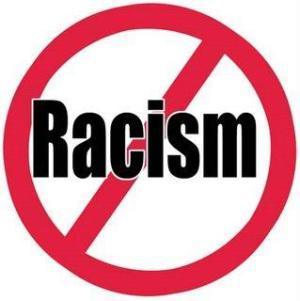
image from http://www.sodahead.com
IO manifests when Black people tell themselves or others (or have TV shows/movies/ music videos/ books which demonstrate) that “lighter skin” is “prettier” or straighter hair is “more professional.”
Best first-read to unlearn racism? A classic, by Professor Peggy McIntosh, “White Privilege: Unpacking the Invisible Knapsack”
http://www.artsci.washington.edu/natsci/Search-committee-materials/unpacking-invisible-knapsack.pdf
ETHNOCENTRISM/ANTI-SEMITISM: When Jewish families determine that their child’s teenage nose is “too large” and encourage or require their child (usually a female) to have plastic surgery to “fix” (break and reshape) their noses, that is IO imposed by the parents onto the children. Similarly, hair-straightening, skin-lightening, lip-thinning or plumping and other feature-changing attempts all stem from some type of racist/ethnocentrist IO most of the time.
Example: ABLEISM: Those with different physical/mental abilities or disabilities position ourselves “above” as many others classified in this way as possible, striving to be seen and appreciated for our strengths, but not giving that same respect and value to those we place “below” us. This classification of individuals within an oppressed group by members of that group is also classic IO in action: we do the oppressors’ work for them.
When a paraplegic calls a quadriplegic a “crip,” that is IO. When we who are older and becoming more hearing-impaired respond with impatience to someone else who can’t hear well, or are self-deprecating about our own inability to hear clearly, that is IO.
AGEISM: When adults presume younger- or -older looking people are teens or elderly and therefore treat them with less respect, that is oppressive. When WE, as members of a targeted age group, have similar negative attitudes because of someone’s actual or presumed age, IO is taking charge.
Telling ourselves (and anyone else) that we/they are less capable, worthy, competent or otherwise valuable because of our/their age (whatever it is) is also IO at work.
HETEROSEXISM: When gay men deride other gay men for being “too faggy” or a “flaming ‘queen,'” or lesbians call other lesbians “bulldykes” or “lipstick lesbians” based on their appearances, that is IO. Being down on ourselves as bisexuals, believing we are “unclear” or people who “can’t make up our minds” means IO has taken over.
Some people believe that oppressed groups can “reclaim” derogatory labels, like “nigger,” “dyke,” “fag,” “kike,” “bitch,” “‘ho'” and others by using them among “ourselves,” but I strongly disagree and so do those who work within the oppression-reduction movements. Using the slave-owners’ terms for the slaves among the slaves does NOT “empower” them: it makes them colluders.
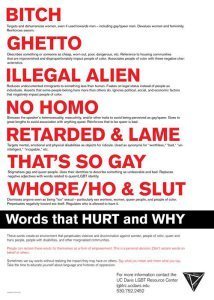
image from http://goodmenproject.com
You don’t “liberate” a derogatory term by using it repeatedly. Instead, we give the oppressors and bigots permission to use horrible names for us publicly and strengthen those terms’ cultural importance because we use those names, too. I don’t use them at all, anymore.
IO gets its main power from us. When we hear messages repeatedly that we aren’t “good enough,” regardless of who we are and how we look, from advertisers that want to sell us products to “make us look better,” these messages creep into our psyches. We then exacerbate and facilitate this brutality onto our own self-esteem when we buy into the ideas that we aren’t attractive because of IO operating on our subconscious.
Example: AGEISM and SEXISM plus LOOKS-ISM: Women and men do not “need” to remove body hair to be “attractive.” Believing that body-hair-free men or women are “sexier” is a social construct, one not followed by most of the world and only recently followed even by modern adults. Body-hair-free adults look more like pre-pubescent children. How is that look perceived as “sexy” by anyone who is mentally healthy?
What can we do to eliminate or reduce Internalized Oppression?
Perhaps you’ll be willing to go on a hunt, excavating your own internal messages and searching for those that are oppressive in order to eradicate or neutralize them. I hope you will.

image from http://www.industrialantioppression.blogspot.com
Read! Listen to Podcasts or watch videos on this topic: there are thousands of ways to recognize and then unlearn the messages we have internalized that build onto institutionalized oppression.
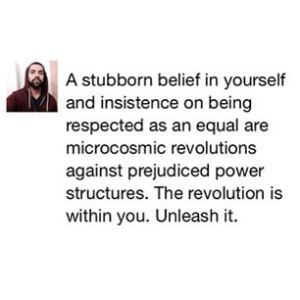
image from http://ink361.com
PEGGY McINTOSh’s article
If your self-improvement efforts are not immediately successful, don’t be discouraged: it can take decades to “unlearn” the oppressive viewpoints which have been inculcated into us all. Just keep trying to notice them and not believe them: that’s a great start. Also, if there are workshops, classes, or other opportunities online or in person (better) to unlearn racism, sexism, etc., or to learn about social justice and oppression, please avail yourselves of them.
It’s never too late to become less biased and to learn to advocate more positively for yourself as well.
Next, don’t allow statements that perpetuate IO to go unchallenged. Speak up. Speak out.
Silence = assent is not just a bumper sticker.

image from http://www.decolonizingyoga.com
Filed under: Life lessons, Opinions Tagged: ageism, anti-Semitism, bias, classism, feminism, heterosexim, homophobia, internalized oppression, Movement for a New Society, politics, prejudice, racism, Re-Evaluation Counseling, sexism, social change, social justice, transphobia

February 12, 2015
#Writing as Excavation of the Soul
Repost from 12/2/13
For me, #writing fiction and poetry always involves digging up artifacts and dirt. My own and others’ buried treasures, junk, secrets and lies are uncovered, examined, deemed worthy “as is” or refurbished, cleaned up and presented within the text.
Writing #ClaraBranon, as her and about her, is the most autobiographical fiction I’ve ever written. I decided to gift Clara with most of my own “stories” and history, to see what would happen when a version of me is involved in the circumstances and relationships Clara encounters. It’s a roller-coaster for me, delving into my own life to pull up people, events, emotions, reactions, wishes, fears, griefs and successes and foist them onto Clara.
Usually, she does a lot better than I do or I already have with these events and has a much higher “success” rate with her conversations and intimacies than I can claim. In many ways, I feel envious of her. I also do not want her life, especially the public part. But, I do sometimes wish I had her personal strength and courage.
Oh, wait; I do. I must. I also have her creativity, the fire that burns within her, since I gave it to her. Of course I do.
Then, why is it so much easier to see this in Clara than in myself? I believe I make a character in my own image and deliberately make her better than I am only to discover that she can’t be better than I am because I made her. Not to put too fine a point on it, but the whole “God-made-humans-in-‘His’-own’-image” story has similar issues, yes?
As a fiction and poetry creator, as a #Buddhist well aware of the illusory nature of all phenomena, as a fabricator and dreamer, I am well aware of the fantasies I make into a semblance of reality with each paragraph or stanza I put into words. I paint pictures of scenes, drawing upon deep emotional bonds and reactions in order to do it, but we all know none of this is “real.” Right? Except for the parts that are true, that is.
The exhilarating, terrifying ride of writing one’s own stories in whatever forms is that others are going to read them and get to know things about me and my inner world I would never tell them, otherwise. My best defense, then, is to mix these true tales with pure fiction.
Sometimes serving up this admixture seems to be a cop-out move on my part, as I feel a taunting voice within me saying: “Na, na: you can’t know me! You don’t know what parts of this are ‘mine’ and which are completely made up. So there! Try and figure it out. I’ll never tell!”
This is the gauntlet every writer throws down to one’s readers: “Catch me, if you can!”
I do leave breadcrumbs for your journey, especially on Pinterest: http://www.pinterest.com/sallyember and here in my blog posts. Happy treasure hunting, readers!
Please let me know what you find and what labels you decide to put on each trinket. We can compare later. Start with Volume I, This Changes Everything (NOW FREE) and ask: “Who is #EpifanioDang?” Move on to “Are there really #aliens coming or already here from the #ManyWorldsCollective?”
http://www.sallyember.com for buy links, reviews, interviews and more. Look right; scroll down.
Continue with a chapter-by-chapter analysis of world history, politics, biology, religions, the arts and meditation and keep going: The Spanners Series has so much to offer you, including Volume II, This Changes My Family and My Life Forever, which released 6/9/14, and Volumes III and IV coming out in 2015!
Enjoy! Write Reviews! Share!
Filed under: All Volumes, Blogging and others' content, Personal stories, The Spanners, Themes from The Spanners, This Changes Everything, Volume I of The Spanners Tagged: aliens, Buddhist, Clara Branon, ebook, Epifanio Dang, Many Worlds Collective, meditation, romance, Sally Ember, sci-fi, The Spanners Series, Volume I, Writers, writing

February 10, 2015
Is all disagreement “negativity”? When did that happen? I DISAGREE!
THIS POST IS DEDICATED TO MY MIDDLE SISTER, W. ELLEN E. FLEISCHMANN, A MISSOURI STATE CHAMPION DEBATER, WHOSE BIRTHDAY IS TODAY!
Is all disagreement “negativity”? When did that happen? I DISAGREE, and I am not being “negative,” unless we’re in a debate, in which case my “side” is “con ” (as opposed to “pro”).
This issue has arisen in various ways over the last two years or so, since I became a indie author, blogger and online participant. However, in my latest foray into online “conversations,” I engaged in an exchange that has been very disappointing.
An online acquaintance who moderates one of the Facebook groups I belong to has a public website that includes a blog where she often posts reviews. I’ve been following her site and occasionally reading her posts. Otherwise, we don’t know each other.
A bit of background: I don’t usually comment on hers or anyone’s reviews unless one is particularly well-written or I happen to vehemently agree or disagree with it, which was the case, here. This is a public site and she allows for comments.
This reviewer (who shall remain nameless) posted rave comments for the 50 Shades trilogy, including her wish to speak with E.L.James (making it seem as if she had an “author crush” on E.L. James, which I have no issue with at all). It was her calling the main relationship portrayed in 50 Shades “the greatest modern love story” of her time (this reviewer is about 20 years younger than I am, by my estimate; perhaps younger), that compelled me to respond.
I thought carefully about what I felt and thought and how I wanted to convey these bits, edited and revised my comments a few times before I posted them for approval. Then, I went on to my day’s other business.
Unfortunately, I received the following message (see below for our email chain) later that day.
Her decision not to “approve” or post my comment on her site and her intense, personal reaction surprised and appalled me, as you will see by my email response to her.
I’m not trying to start any kind of conflict or flame war. I really want to know what you all think. (See below.) Here are my main questions to you, my blog readers:
—-Are we supposed to withhold responding when we have ANY disagreement between us and any members of our online “community”?
—-Is ALL disagreement “negativity”?
—-Do we have to speak in “soft tones,” “soft-pedaling” anything that might possibly be critical, because so many writers/bloggers seem unable to tolerate being criticized?
—-Are we supposed to keep our sites (and purportedly, our lives) free of all conflictual conversations by not approving critical comments?
—-Do those of us who have criticisms to levy have to refrain or risk being called “trolls,” or banned/kicked out of review groups, comments sections, social network platform groups, etc.?
—-Do only “yes” people and “supporters” feel (and get) welcomed online?
I can’t recreate my exact comment, but here is the gist:
Your post made me feel sad and I feel sorry for you. What world do you live in, that these two-dimensional characters and their dysfunctional sex and interactions constitute any kind of “love story,” much less “the greatest one”? James’ depiction of her disempowered, ignorant female lead character is insulting to women everywhere. The “billionaire” male lead is selfish, clueless about healthy relationships and awful to his “girlfriend.” The “plot,” thin as it is, is implausible. Some of the “play” depicted in the sex scenes is not credible or even possible (people have tried to recreate it with laughable and/or injurious results).
I reviewed and disliked all three books, giving many considered reasons. Please go read my reviews. I also consider E.L. James’ writing among the worst to receive public acclaim, so as an editor, author and reader, I challenge your evaluation of the writing of these novels. Your opinions caused me to feel discouraged.
Here are the first email I got from this reviewer, below, and our exchange below that.
Subject: Blog Comment
“I was really on the fence with whether or not to approve your comment, Sally, or to respond to it. Because realistically the best way to deal with negativity is to not feed into it. So in this case, I’m going to respond privately.
“In answer to your question: ‘What world do you live in?’ I live in a democratic world where everyone is entitled to their own opinion, and since it is my blog, I am free to express it. You chose to read my blog, just as you obviously chose to read Fifty Shades of Grey. And like all readers in the world, we all have different viewpoints on how we interpret a book. You have no right to judge my opinion, just as I have no right to judge yours.
“However, the fact that you chose to try and publicly insult me on my blog, saying that you feel sorry for me for my opinion, that you feel saddened by it, is extremely hurtful.
“I have supported your posts on [the Facebook group I moderate] since its inception, and I am disgusted that you would even try to publicly insult me, as I have never done anything but provide you with support. I did not approve your comment.”
I’m reading this, stunned. Really? These two lines, in the same paragraph, written without irony?
“I live in a democratic world where everyone is entitled to their own opinion…” followed by
“You have no right to judge my opinion, just as I have no right to judge yours.”
If we have a “democratic” right to our opinions, isn’t judgment a form of opinion? Why does she think we “have no right” to judge anyone else’s opinions? That is so absurd I don’t even know where to start with a response.
And, a deletion of my comment follows this “explanation”? I’m sputtering and laughing, both.
What IS a review, if it’s not exactly that: one reader and possibly another writer JUDGING another’s opinions and writing?
What is the function of comments on reviews, if not to JUDGE that review (like it, dislike it, agree/disagree)?
I considered, took some deep breaths, decided it was worth my time to respond. Maybe she could learn something… Maybe not.
I wrote, revised a few times, then responded:
Subject: Re: Blog Comment
“Dear XXX,
“It is your blog, your review and your opinions: all true. But, if the only comments you ‘approve’ on your site are those that agree with you, make you feel good and support your opinions unequivocally, you will stagnate.
“Your choice.
“I did not set out to be nor do you have to take my comments as ‘hurtful.’ I was expressing my dismay, my personal (as a female and feminist who is a lot older than you) and my professional (as a writer who has been writing a lot longer than you) sorrow at your conclusions and approval of those books. I read them all, too. I reviewed them all, too.
“If you want to go and comment on my reviews, please do. Say whatever you want, as a reviewer, a writer and a reader: that is your right. I encourage you to do so.
“Your previous support of my posts is appreciated, but your using that as if you ‘paid’ for my approval forever by doing so is insulting to me. Stop approving, stop supporting, if you think you ‘deserve’ some special and DISHONEST responses from me for doing so.
“If you want to close off conversations between us because you disagree and get hurt feelings when I don’t like what you write or post, I can’t stop you, but please; don’t make it as if I did anything wrong. You have a public blog. Comments are public. I did not ‘publicly insult you.’ I responded to your public post, in public, where comments belong.
“Sheesh.
“Sally”
She wrote back:
Re: Re: Blog Comment
“I will not respond to your negativity, Sally.
“We obviously do live in two different worlds. I’m happy to stay in mine.”
I did not and will not respond directly to her. I gave up on her: not apparently willing to be learning; not worth my time.
Instead, I am writing this post and asking for YOUR opinions.
Maybe I could have phrased my comment more “gently,” in some misguided attempt to protect her, but I would NEVER consider doing that for a man or someone my own age. Wouldn’t I be subjecting her to gender and age bias if I were to withhold, “dumb down” or soft-pedal my considered and professional opinions just because she’s a woman and/or someone younger than I am? She presents herself as a professional in public so I treated her as one.
Why doesn’t she expect some responses that don’t please her and have a better way to manage her own feelings about them? Why can’t she handle disagreement and criticism with more grace, or, even better, engage in a conversation with me about her points of disagreement, defend her opinion, argue her points, instead of playing the “hurt” and “insulted” cards? Why is all right for her to judge my comments but not all right for me to judge her review?
Are we “fellow authors” and reviewers/bloggers really obligated—no; supposed to—send all comments in which we disagree with a blogger to them privately, first? Why?
I vehemently disagree with these ever-expanding hiding-from-public-view practices. I am certain that hiding disagreements results in the disappearance of complex, nuanced dialogue and provides the public with pablum, instead. Then, the only thing readers get is a distorted picture of author engagement, in which we all hold hands and sing “Kum Ba Ya” all the time. When we post only glowing reviews, readers are misled and we breach the public trust.
When some label comments they don’t like as “negativity” and relegate disagreement to the private realm, we are all then left with sanitized, white-washed, dishonest and hypocritical non-dialogue in all public spaces: what is the point of engagement, then? Just keep patting everyone on the back, regardless of value, worth, logic, perceptions?
Not all disagreement is “negativity.” Not all conflicts between us should position one person as “good” and the other as a “troll.” Yes, there are “trolls.” I am not one of them, and this person should realize that. I am not hurt, just pointing out the obvious.
If she really can’t tell the difference between my expressing my honest opinions, while I am respecting but not liking hers; if she can’t see that I am not liking that she came to the conclusions she did or made the choices she did, but I am taking the time to tell her that as one professional to another, then I am led to give up on her.
Authors and bloggers, in my view, do not “earn” uncritical support (or maybe you think you do and you want it, but I do NOT) just by joining a group or getting to know each other online. If you are my professional “friend” or colleague, PLEASE tell me the truth. I don’t want applause; I want critiques and engagement that matter.
Just so you know: I do not go around looking for people to disagree with. I am busy. Most of my posted comments are supportive and positive, and I don’t post a lot of those, either.
HOWEVER, when something disturbs and moves me enough to write to someone about it, that writer should be grateful: I read his/her piece, respected the author enough to consider their opinions or positions, and responded from a thoughtful place.
When I am writing to the reviewer or blogger in order to provide my emotional as well as logical responses, that is further proof that I believe in this author or blogger enough to take MY precious time to craft and post a response.
If this blogger and any others do not understand that all thoughtful comments, however contradictory or critical, are a gift, their censorship is going to make honest dialogue even more rare.
Some writers apparently don’t have the courage to stand by their own public proclamations and engage publicly with people who do not agree with them. I term this behavior “unprofessional” and deem them unworthy of my time and opinions in the future.
BTW: I went to her FB group to see if she (the moderator) had kicked me out, and so far, not. However, she posted and pinned this query, right after our email exchange:
“Since this group is becoming more and more of a spam magnet, and not so much about [the group’s stated topic] anymore, I’m thinking it’s time to put it to rest?
“If anyone cares to keep it open, please respond with a comment, and I’ll see what reception I receive.
“I’m thinking about opening another one using a different name and with a slightly different purpose. Thoughts?”
Shutting down this group and using a different name to start another one?
Coincidence? I doubt it.
PLEASE post your comments here, on my main blog, to this any any other post:
http://www.sallyember.com/blog.
ALL comments that are not SPAM are ALWAYS approved.
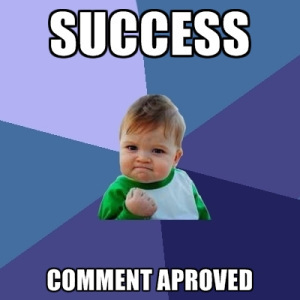
image from http://www.phoenixheart.net
Keep writing, keep commenting, keep reading, keep approving.
Best to you all.
Filed under: Blogging and others' content, Opinions, Personal stories Tagged: blogging, disagreement, public comments, Writers, writing

February 8, 2015
How to Get 100,000 Views of Your BLOG (21 Blogging Tips)
Excellent #tips, #advice, #resources and #recommendations. Thanks, Chris McMullen! Best to you! #bloggers #blogging
 Originally posted on chrismcmullen:
Originally posted on chrismcmullen:
BLOG SUCCESSFULLY
I first began blogging actively on WordPress in December, 2012.
Only a little over 2 years, and my blog has reached 100,000 views and nearly 4,000 followers. My blog averages over 400 views per day presently, and the viewing frequency steadily accelerates.
If I can do it, you can, too. I believe it.
It’s not rocket science. (Just ignore the fact that I have a Ph.D. in physics. I didn’t use any physics to make my blog.)
In fact, I’m sharing my blogging ‘secrets’ today to help you do the same.
It’s not just me. I meet many other WordPress bloggers with many more views and followers than I have.
If you’re not there yet, don’t worry. You can get there, too.
I’ve created multiple blogs and webpages with WordPress, BlogSpot, GoDaddy, etc. By far my most successful blog or webpage is this WordPress blog. We’re fortunate that…
View original 4,619 more words
Filed under: Writing

#Authors #Marketing Yourself and Your Work (Final) Part FIVE
PART FIVE in this excellent series by Susan Toy on The Story Reading Ape’s blog. Thanks, Chris Graham, for posting!
 Originally posted on Chris The Story Reading Ape's Blog..... An Author Promotions Enterprise!:
Originally posted on Chris The Story Reading Ape's Blog..... An Author Promotions Enterprise!:
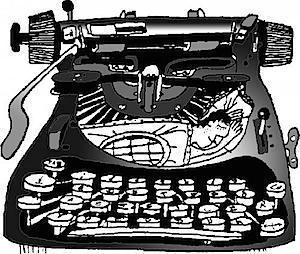
The following is an extract from a talk delivered at the Calgary Public Library in Feb. 2011.
Part 5
Another area of promotion you should consider developing – and only do this if you are comfortable with it – is speaking engagements. Speaking engagements are something your publisher will not arrange for you, unless they are approached directly by a group inviting you to speak. Make sure you are either allowed to sell books or that a bookseller has been asked to look after sales wherever you appear.
Here’s another important statistic I gleaned from reading Get Known Before the Book Deal: Authors who speak at events sell three times as many books. (This book is listed in the bibliography at the end of this post.)
You can give a straight reading from your book, but my preference is to hear an author talk about how…
View original 1,150 more words
Filed under: Writing

February 7, 2015
Discussion: One Star Reviews
I wish ALL book bloggers were more like Carrie!
 Originally posted on The Mad Reviewer:
Originally posted on The Mad Reviewer:
Although I honestly had no idea this whole controversy existed until a year or so ago, apparently posting one star reviews is a little controversial in the book blogging community. Some bloggers believe that posting one star reviews is part of an honest and open reviewing process. Others believe one star reviews are a waste of their time or invite unwanted negativity and possibly author attacks. It really varies blogger-to-blogger.
As my regular readers know, I do post one star reviews. Sometimes I’ve posted 0.5 star reviews. Why do I read books I clearly don’t like? Well, like any sane human being I pick up a book because it’s interesting and I think I’ll like it. Sometimes the promise of the blurb and the other reviews encourage me to do so only to disappoint me. When I start a book I don’t like to not finish it. This is in…
View original 254 more words
Filed under: Writing



